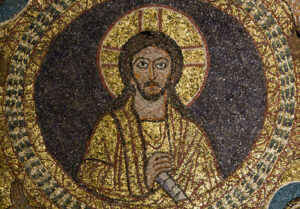Introduction
That the end of history only lasted 25 years, give or take, is a tragedy or an opportunity depending on who you ask. Either way, the utopian dream of a liberal world which would last forever, unchallenged, was always something of a farce. In The End of History and the Last Man Francis Fukuyama himself, belying his reputation as a neoliberal shill, stressed how a sleepy, herdlike society would come to long for history to restart. Fukuyama even hypothesized that outsized aristocratic wannabes yearning for recognition—including Trump, whom he singled out by name—could quite possibly restart history in their quest to be bigger, badder, and brighter orange than the competition. He turned out to be right, and we’ve been living in a political environment defined by the rise of right-wing populism qua postmodern conservatism since the mid 2010s.
These seismic shifts have been widespread, with “illiberal” democrats like Victor Orbán and far-right populists like Meloni gaining power around the world. The shift has prompted innumerable explainers, critiques, and analyses (including by yours truly) of the various old, new, and retro conservative doctrines that emerged to argue for a right-wing future. One of the most recent, and best, accounts is Kevin Vallier’s All the Kingdoms of the World: On Radical Religious Alternative to Liberalism. Vallier is an Associate Professor of Philosophy at Bowling Green University and has previously written eloquently on liberal politics and trust in an era of division. In this book, he carefully examines the arguments of liberalism’s enemies in order to understand them from inside their own logics. Vallier has three stated audiences in All the Kingdoms of the World. The first are frightened liberals, who are deeply anxious about the rise of authoritarian political movements. The second are “post-liberals,” who “reject liberal values, though most accept liberal institutions such as constitutional democracy. Some post-liberals cast about for an alternative, finding none … They are not yet enemies of liberal order. They’re merely on the fence.” And the third audience are “religious anti-liberals themselves” who “often support an extensive state that adopts one of the great religions and shapes people to fit within that faith. Anti-liberals seek to alter or abolish liberal orders, and they oppose all liberal political and ethical theories.” While Vallier argues that it is “wrong” for anti-liberals to oppose liberal democracy, his book is refreshing. He wants to explain to distressed liberals who the post- and anti-liberals are, and to offer a systematic response to their arguments which takes them seriously but critically.
The Allure of Catholic Integralism
While All the Kingdoms of the World includes brief but polite discussions of Confucian and Islamic viewpoints, the bulk and heart of the book is its critique of Catholic anti-liberalism. Vallier himself is a devout Orthodox Christian, and he rejects liberalism’s opponents with sympathy, so he can appreciate the intensity of their aversion to “libertinism” and moral pluralism. While those of us who are also critical of post- and anti-liberalism might have wished he’d make the case more forcefully, there are virtues to Vallier’s patient approach. Most criticisms of post- and anti-liberal doctrines understandably condemn them for a failure to be liberal. This will of course be convincing to those already convinced, but it is unlikely to sway many people who see their contest with modernity as a hyperreal crusade against evil, combatting decadence one meme at a time. For Vallier’s third set of readers, it’s very likely that the immanent criticisms developed in All the Kingdoms of the World will be far more persuasive, since they demonstrate how integralism fails on its own terms. For this reason, anti-liberals are likely the primary audience of his book.
The book begins with an exceptionally helpful discussion of modern anti-liberalism, discussing right-wing Catholicism’s inspiration in Constantine’s conversion to Christianity and the intense debates about the divide between sacred and profane political authority. Vallier reminds us that the idea of a secular political order is by no means natural or even longstanding, with the Roman Catholic Church from Leo the Great (440–461) onward playing very active roles in European affairs. This led to the emergence of integralism, which holds that the Catholic Church has both the duty and the authority to supersede profane political power in order to advance “the common good.”
Vallier argues integralism is defined by three core characteristics. The first is “natural authority: God directs the state to advance the natural common good.” The second is that the Church possesses supernatural authority because “God directs the church to advance the supernatural common good.” And third, the Church possessed “indirect supernatural authority” which entitles it to “mandate state policies … backed by civil penalties” that advance the supernatural good of the community so long as it doesn’t “excessively” undermine the natural good.
The doctrine of integralism reached its apex during the Middle Ages, when popes could quite literally depose kings and emperors, even through Crusades. But as the ideological authority of the Catholic Church began to wane, first during the Reformation and then especially throughout the Enlightenment, so too did the allure of integralism. Modern thinkers such as Locke and Rousseau put forward “reassuringly sanitized and austere principles of freedom and equality” which not only challenged, but often ridiculed integralism’s foundation in “revelation and the theory of the Church.” These rumblings lead to the shattering events of the French Revolution, when the “throne and altar” ideology of the Ancien Régime was profoundly challenged and many looked forward to a day when the last aristocrat would be strangled with the guts of the last priest. Anglophones such as Edmund Burke were horrified that the “swinish multitude” would feel entitled to reject “all the pleasing illusions” which glamorized their rulers with “sublime” principles. But Catholic reactionaries like Joseph de Maistre went even further, calling for divine retribution against the “Satanic” French revolutionaries.
Vallier is occasionally too circumspectly critical of liberal revolutions while failing to draw sufficient attention to the extraordinary violence and repression unleashed by aristocratic and contemporary counter-revolutions. But he is anxious that the reactionary elements of the Catholic Church, embodied by figures like de Maistre, may yet prevail over liberalizing Christians who sought reconciliation with the new republican and egalitarian era. They fought a long retreat against it up through the 20th century, when all forms of right-wing authoritarianism from Francoism to Italian Fascism became severely discredited in the aftermath of the Second World War. This led the Catholic Church to attempt a major shift that became formalized after the Second Vatican Council, and which finds reflection in the often very egalitarian ethos of figures like the current Pope Francis.
Who Are the New Anti-Liberals?
This perceived liberalizing of the Church has not gone over well with many conservative Catholics. These unreconstructed reactionaries have mobilized into the various post- and anti-liberal movements that form the targets of All the Kingdoms of the World. Those who want a return to right-wing integralism and anti-liberalism not only have to reject a half century of evolution in church doctrine. They must also find ways to be critical of a pope they dislike even though the pope is supposed to be their highest source of supernatural authority in the temporal world, a contradiction stressed with some dryness by the otherwise unfailingly polite Vallier. Despite this, being unable to live with ideological contradictions has never been a major weakness of the hard right. Indeed a willingness to sublimate and affirm contradiction as expressing some allegedly deep truth, such that subordination to a revanchist aristocracy is really a populist rejection of liberal elitism, is almost a requirement to play the part.
The main individual target of Vallier’s book is, of course, Adrian Vermeule, who is without a doubt the best known and most sophisticated right-wing integralist writing today. A Professor at Harvard Law, Vermuele has been unafraid to reinvigorate the Nazi thinking of arch-reactionary Carl Schmitt (himself influenced by de Maistre) to argue that liberalism’s quest for a neutral and secular politics has failed. For Vermeule, all political conflict is ultimately about competing theological visions and requires a strict demarcation of one’s political friends and enemies in order to succeed in an existential struggle for power. On this reading, even conservative jurists like the originalists of the Federalist Society are too timid and beholden to liberal norms of legal neutrality and “libertine” rights to be of much use. In his Common Good Constitutionalism Vermeule argues conservatives should abandon the fig leaf of originalism and legislate from the bench. As Vallier makes clear in his book, this would be just one phase of a far more sweeping quest to establish an integralist society across the United States and beyond. Sometimes these even take the form of a kind of right-wing Leninism, where a vanguard of integralists would seize control of liberal institutions and remake them from the inside before using them to advance new kinds of soulcraft. Vallier has many convincing, I’d even say definitive, arguments against integralism. The first is an empirical argument that any transition to integralism is extremely unlikely, and even in the very off chance it could be achieved this would only be through methods which most integralists disapprove of. The second is a stability argument, which holds that integralism cannot establish a sustainable moral order which will not collapse into disequilibrium. And the third is a justice argument, which holds that integralism would not be sufficiently just because it would violate certain principles of religious liberty which Vallier thinks mainstream Catholics have come to accept. This is related to the stability argument, since Vallier points out that integralists accept the canonical law that the Church can only legitimately wield authority over the baptized laity. On this basis a ruthless integralist might argue that the long-term stability of integralism in a mostly non-Catholic society would require pressuring or even coercing many citizens to become baptized against their will. This might engender more stability, but only at the heavy price of unjustly and forcibly converting those who don’t wish to be converted. I’d add that this becomes especially amusing when one thinks of how integralists like Vermeule whine that the liberal state wishes to “aggressively” constrain the liberty of conservative Catholics by not allowing them to advance as many policies constraining the liberties of the LGBTQ community as they wish.
Conclusion: A Liberal and Socialist Christianity
Vallier’s arguments against integralism all strike me as both decisive and careful. He’s to be commended for the nuance and richness of his engagement with Catholic tradition (in which I was brought up), and for his rare willingness to take seriously the other side of a debate. Given that this is the main objective of All the Kingdoms of the World, the book is a rich success, and deserves high praise. However, I think Vallier is both far too ambitious and not ambitious enough in offering counter-proposals to rescue liberalism.
He is far too ambitious in thinking that post- and anti-liberals will be content with a liberal state when it becomes clear they cannot replace it. Although many of the integralists Vallier describes are purists, the base of their movements is not. It is far more likely that Christian post- or anti-liberalism will become part of a new three-legged stool that defines the American right, along with the national conservatives and the Nietzschean-authoritarian right with whom they share a lot of ideological space. These groups do have substantial disagreements with one another: national conservatives tend to be contemptuous of religious universalism, post- and anti-liberals are usually wary of the cultural relativism of national conservatives, and the Nietzchean right is contemptuous of the other two legs’ residual commitment to equality and democracy. But their shared and overriding contempt for the liberal order may well be sufficient to alloy these differences and to form a united front against the shared enemy. This would of course align well with the Schmittian impulse to divide the political cosmos into friends and enemies and conclude that, whatever our long-term differences, the enemy of my enemy is my friend.
On the other hand Vallier is not ambitious enough because his primary olive branch to those who are alienated from the nihilistic culture engendered by neoliberal society is to form local communities and even small cities where traditional religious practices can persist and flourish. His example is the monastic republic of Mount Athos, where two thousand Eastern Orthodox monks dutifully preserve their Christian heritage and seek the “transformation of man into divine likeness.” I have nothing bad to say about the voluntary and democratic establishment of such communities, provided exit opportunities exist. But it seems very implausible to me that liberals can sail the wave of right-wing discontent that includes Christian anti-liberalism safely into the tranquil harbor of pluralistic localism. Such opportunities have already existed for a long time. They have not answered the spiritual and material hunger of hundreds of millions who wish to reject the possessive individualism and competitive postmodernism of neoliberalism and are looking for something better.
It is odd that Vallier lists as the three audiences for his book liberals, post-liberals and anti-liberals but never addresses a fourth possibility: progressive Christians who wish to rescue the egalitarian core of liberalism from its neoliberal perversions. I am talking of course about Christian socialism, which has enjoyed enthusiastic and deepening support across much of the United States. Christian liberal socialists reject the claim that spiritual edification can only come from the establishment of new forms of authoritarian power, which will have the force to resubordinate those who have long struggled for freedom. Instead we insist that “the wretched of the earth” must know that God is on their side. Without a doubt liberal socialist Christianity is less well-known than its right-wing counterparts today. But inarguably the most successful American religious campaign of the last century was the Civil Rights Movement—not the sanitized memory of the centrist imagination, but the radical Christian and socialist struggle that led a Baptist minister to call for democratic socialism and respect for liberal rights as the just path forward for all of God’s children.
This is a very different approach to modern discontent than the one offered by right-wing Christians, who would continue to relegate the marginalized to the periphery. It could answer the spiritual hunger of Christians everywhere for a society that is more just than the one on offer, not by abandoning the achievements of liberalism, but through truly realizing them for the poor. Liberal socialist Christianity can embody a truer expression of the hopeful message of the Gospels than Catholic integralism ever can, and serve as a handmaiden and partner in the creation of a better state where the least among us are the first concern of society.
Matt McManus is a Lecturer at the University of Michigan and the author of The Political Right and Equality (Routledge) amongst other books.
Photo Credit: “Landscape with the Temptation of Christ LACMA 81.1” by Fæ is licensed under CC BY 2.0.




